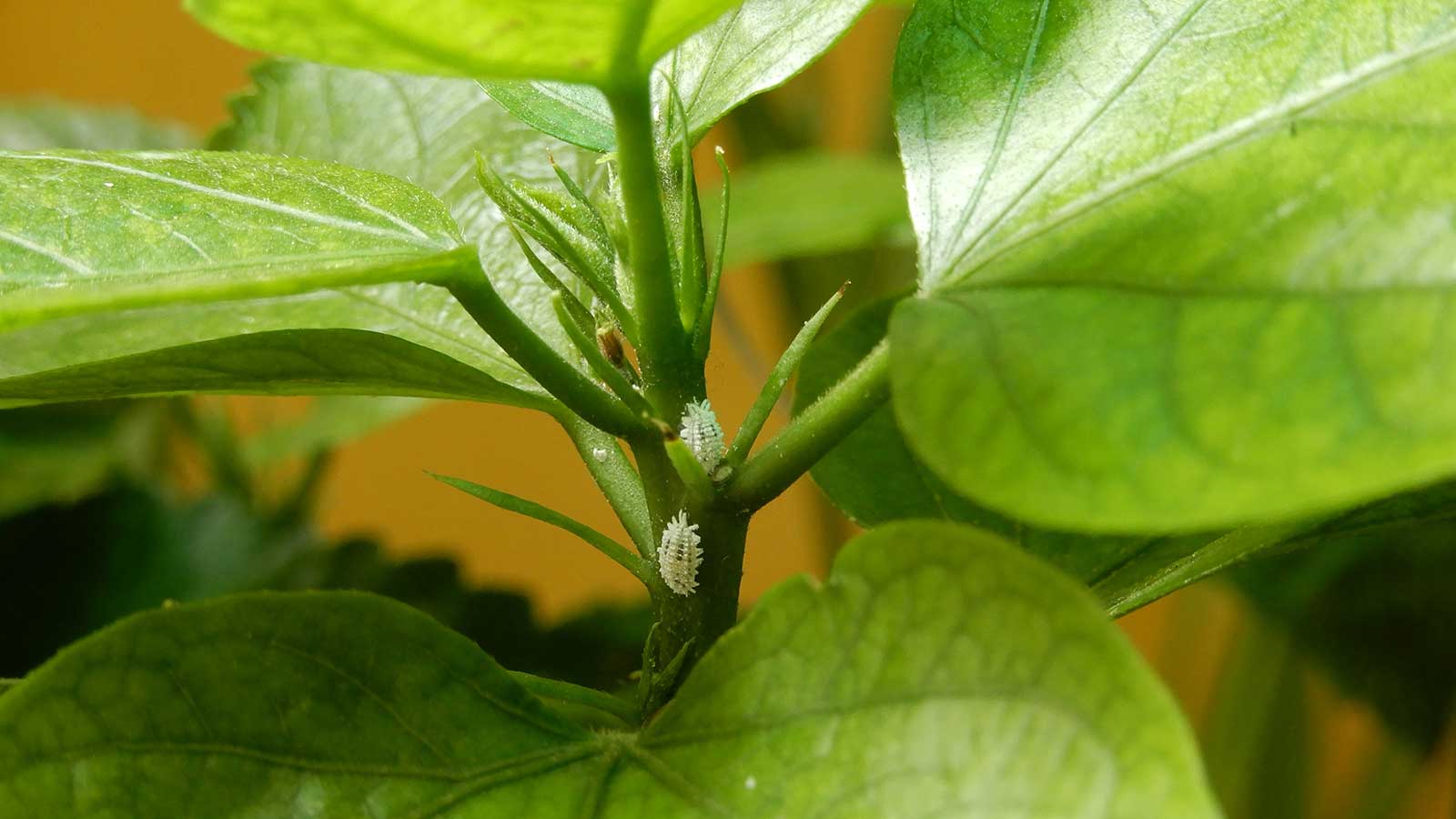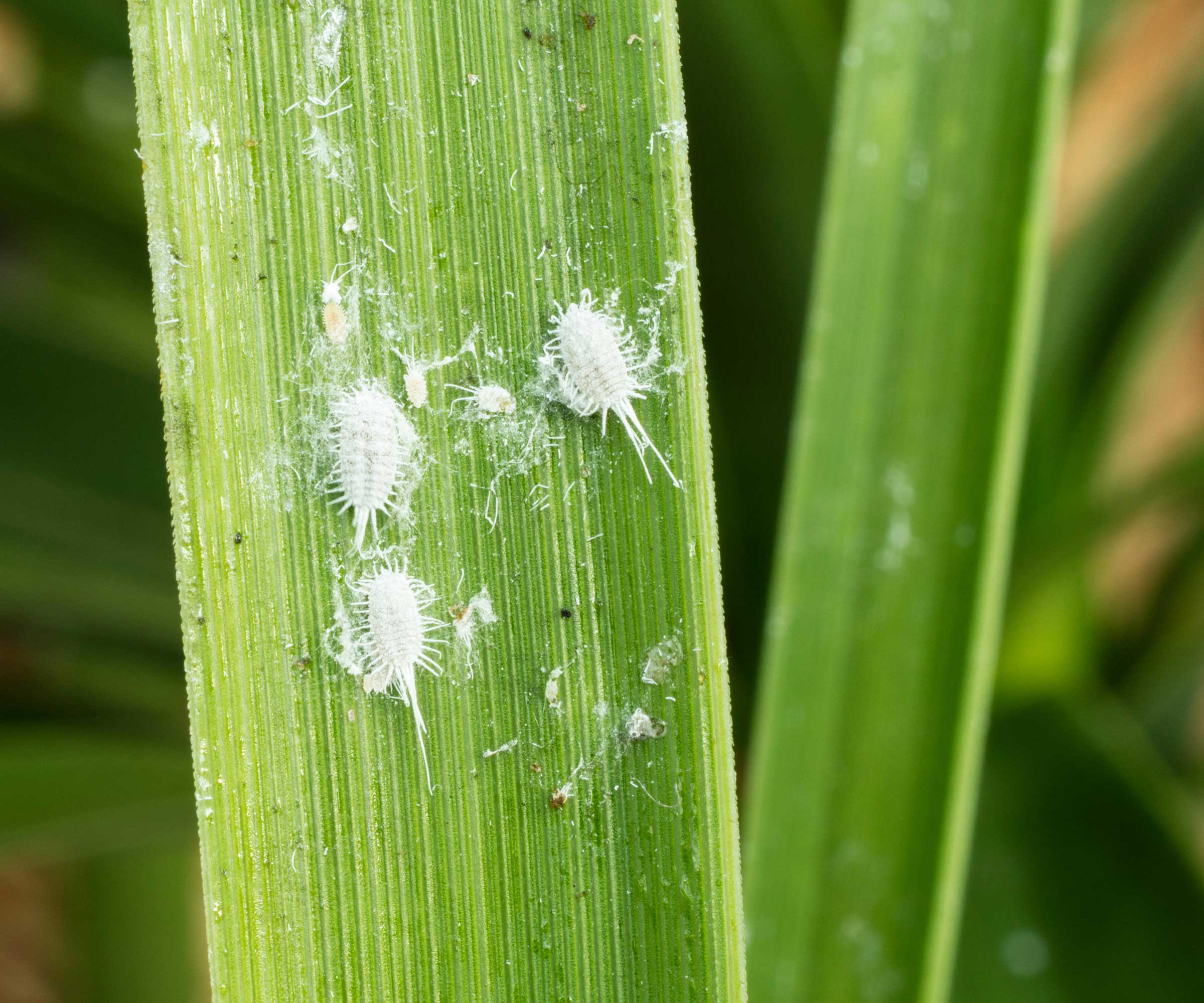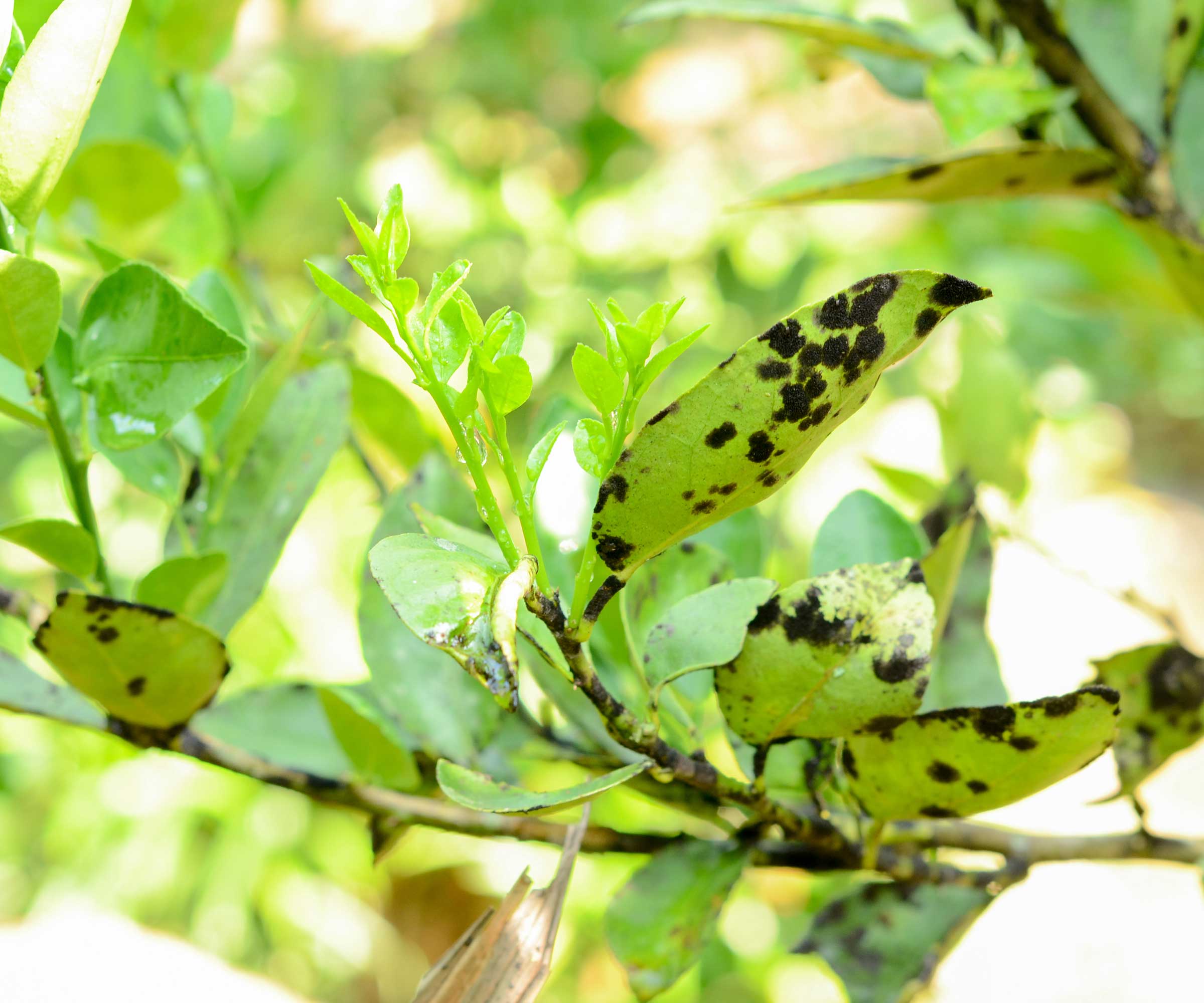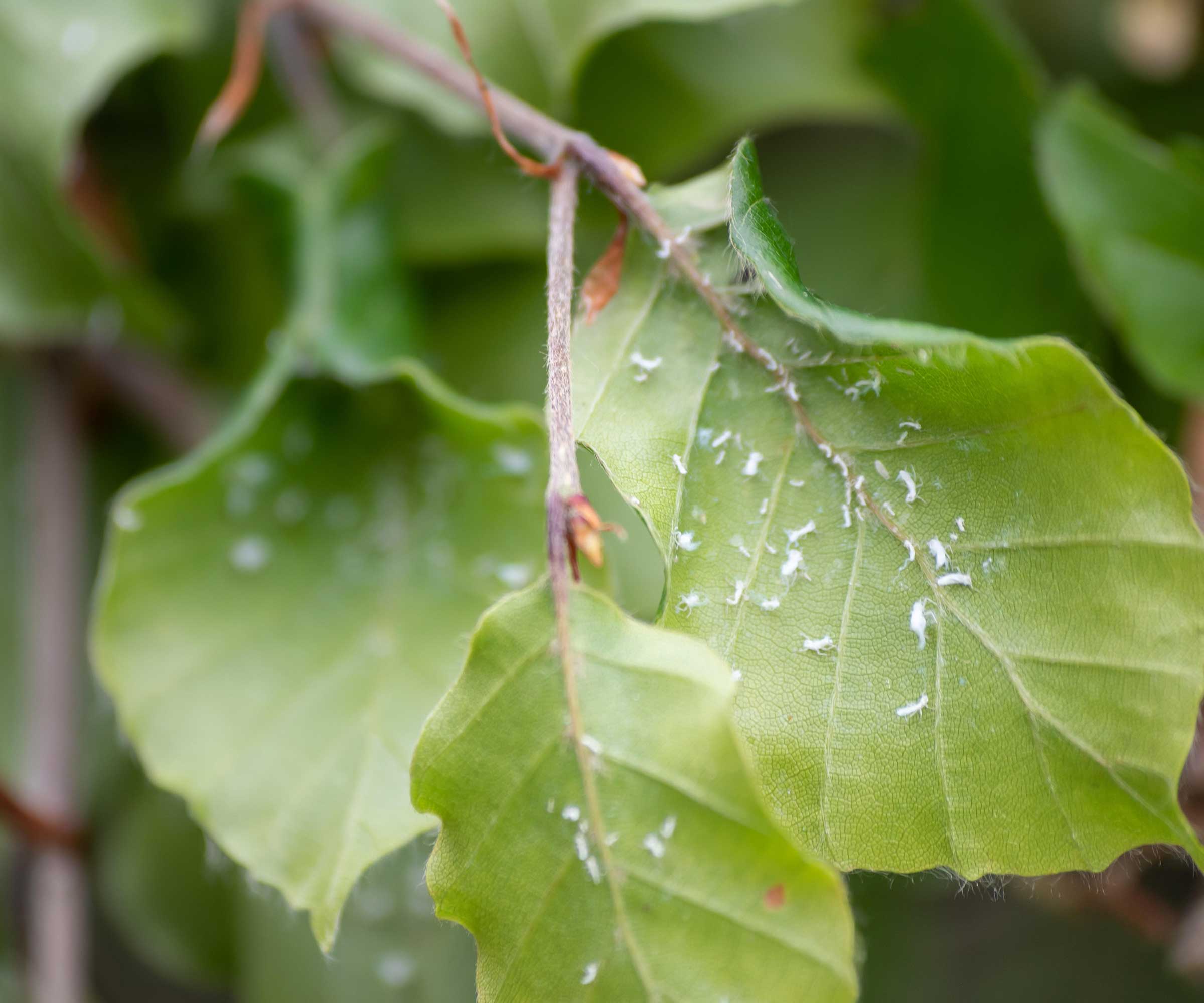How to get rid of mealybugs – 4 expert-approved methods to tackle these plant pests
Mealybugs are a common interloper of indoor plants – here's how to tackle them quickly and without chemicals


Design expertise in your inbox – from inspiring decorating ideas and beautiful celebrity homes to practical gardening advice and shopping round-ups.
You are now subscribed
Your newsletter sign-up was successful
Want to add more newsletters?
Mealybugs may be small, but these insects are still a nuisance, all year round. They are often found targeting orchids, succulents, citrus plants, and many other plants grown indoors (including in greenhouses). Some species can also infest plants outdoors, especially in warmer climates. Knowing how to combat mealybugs in your yard and indoors is vital for all gardeners.
Like aphids, mealybugs feed on sap. This weakens the plants and can cause them to lose their leaves, says Joanna Turner, Owner of Fiddle & Thorn. They also excrete honeydew, explains the gardening experts at Two Wests & Elliot Ltd – a sticky substance that encourages the growth of unsightly sooty mold. Some species of mealybugs feed on plant roots, too.
However, there are a few ways to beat these bugs and keep your houseplants healthy – without having to reach for chemical pesticides.

Joanna is a houseplant enthusiast and the editor of Fiddle & Thorn which has helped over 1 million people around the world take better care of their plants.

These small insects are common on indoor plants, but some survive outdoors, too
How can you identify a mealybug infestation?
Before you start treating your plants, you'll need to make sure it's mealybugs that you're dealing with.
One visible sign that your plant has mealybugs is a white substance on the leaves, stems and in the soil, says Joanna. It's waxy and looks fluffy – a bit like cotton wool. This covers the small, oval-shaped bodies of the insects, and also their eggs.
'When looking for mealybugs, make sure to check the undersides of the leaves as well as stem joints and any crevices on your plant,' she adds. 'Female mealybugs like to lay their eggs in protected places, which is why they can be tricky to spot initially.'
You may also spot sooty mold developing on your plants – often across the tops of leaves. This is a black, powdery, fungal growth.
Design expertise in your inbox – from inspiring decorating ideas and beautiful celebrity homes to practical gardening advice and shopping round-ups.

Mealybugs can encourage the growth of sooty mold
1. Remove affected areas
'As soon as you have diagnosed that your plant is suffering from a mealybug infestation, the first step we always recommend taking is to remove the worst affected leaves,' says Joanna. 'This is a simple way to cut down the size of the mealybug infestation and can make it easier to get under control.'
Ensure you destroy the removed areas of plant and clean your pruning shears thoroughly afterward to avoid spreading the bugs elsewhere – as you would do when removing leaves and stems infected by thrips, another common houseplant interloper.
2. Rub away insects with alcohol
Travis Turgeon from Potted Exotics is an advocate for using alcohol against plant pests, saying how, in his experience, it's the best way to tackle mealybugs. He instructs to dampen a cotton ball with a solution of 75% rubbing alcohol and 25% water, then gently wipe any visible bugs away. He follows this with an application of neem oil, explained below.
Hanna Bell from Gardeninghood.com agrees that rubbing alcohol is an effective method for getting rid of mealybugs. 'This will kill them instantly.
'You can also use a spray bottle to apply a mixture of equal parts water and rubbing alcohol onto affected plants,' she adds. 'This will help to kill the mealybugs, as well as their eggs.'
The experts from Two Wests & Elliot Ltd also agree: 'The alcohol will evaporate quickly, leaving no residue on the plant.'
It's not just mealybugs that alcohol can help to tackle – it's said to be good at getting rid of fungus gnats and scale insects, too.

Travis is the Owner and Lead Editor for PottedExotics.com – a website devoted to teaching current and future plant parents about all things that require a bit of a green thumb. He graduated from the University of Nebraska-Lincoln with a degree in Environmental Restoration Science, focusing heavily on agricultural and plant sciences as a whole. He currently lives in Thailand, where he has the opportunity to seek out all sorts of exotic plants to further his knowledge and share it with the world.

Look out for a white, waxy substance on your plants
3. Apply neem oil
After tackling mealybugs with alcohol, Travis recommends applying an all-organic neem oil solution, either store-bought or one you mix yourself, with a spray bottle.
You can make his DIY solution by combining one gallon of warm water with two tablespoons of pure neem oil and two teaspoons of mild dish soap which acts as an emulsifier. Shake the bottle thoroughly before each use.
'Monitor the infestation over the following week, applying a bit more of your neem oil solution every few days until the problem is solved,' he says.
4. Try insecticidal soap
You can also use an insecticidal soap to remove mealybugs, says Hanna. Again, this can be bought pre-made (such as this Garden Safe one from Amazon), or you can make a homemade bug spray using pure Castile liquid soap and water. As with neem oil, the solution can be sprayed directly onto the affected areas of the plants.
'The soap essentially suffocates the bugs and disrupts their cell membranes,' explains the gardening experts at Two Wests & Elliot Ltd. Repeat treatments until the pests have gone.

Mealybugs can be treated without the use of chemical pesticides
Whether it's indoor plants decorating a living room shelf or tomatoes growing in your greenhouse, don't let these pests spoil the show. Keep an eye out for their telltale signs and tackle them quickly using the simple methods above.

Holly started writing about gardening five years ago, and she is a regular contributor to Homes & Gardens. She has also written many gardening features for Woman & Home and Real Homes, too. She has previous experience as a professional gardener, where she helped to plant and maintain private gardens. Holly has also looked after allotment plots over the years and loves to grow her own flowers and veggies from seed. In her spare time, she enjoys visiting local gardens, botanical drawing, and tending to her ever-growing collection of houseplants.